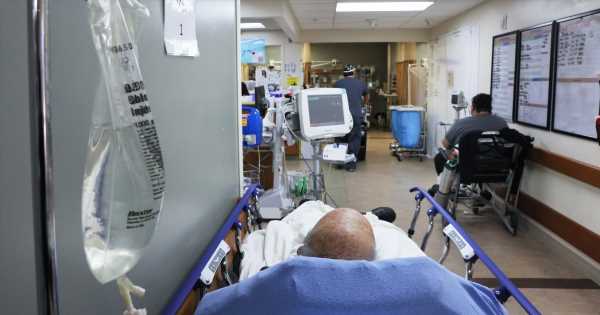Health information exchanges can play a vital role, particularly in value-based care because clinical data shared with and through HIEs means that the most complete and current data can be applied as clinical decisions are being made.
HIEs evolved during the pandemic and state health departments are working to further evolve by merging resources, applying for federal certification and strategizing ways to involve providers.
Certifying New Jersey healthcare data exchange
The Centers for Medicare & Medicaid Services granted the New Jersey Health Information Network Medicaid Enterprise System certification, the New Jersey Innovation Institute announced yesterday.
NJHIN is the state-designated entity advancing interoperable health information technology and the only network facilitating the electronic exchange of protected health information in New Jersey, according to the announcement.
The HIE serves 2.2 million Medicaid beneficiaries and boasts 14 million patient records in its Master Patient Index. Currently, the organization has enrolled more than 36,000 providers, including all New Jersey hospitals, long-term care, assisted living and Federally Qualified Health Centers, according to the statement.
“This is a huge accomplishment for our teams and helps to further validate the importance of our work in the state of New Jersey and in the U.S.,” said Jennifer D’Angelo, NJII Healthcare Division senior vice president and general manager.
“It is an important milestone on the journey to achieving our mission of revolutionizing the healthcare industry and creating a healthier, more connected population.”
New Jersey, after a two-year process, joins 11 other states in earning MES certification.
Creating a progressive healthcare data delivery model in Ohio
Earlier this month The Health Collaborative partnered with the Ohio Health Information Partnership, also known as CliniSync, to establish a statewide HIE and streamline patient data exchange across Ohio’s 88 counties.
According to an announcement, THC, which connects 70 hospitals and more than 18,000 healthcare providers across 14 counties, will transition its HIE customers to CliniSync by the end of 2023.
THC will focus on community health transformation, expanding and diversifying the healthcare workforce, coordinating regional disaster preparedness and response and more.
“The evolution of national interoperability is driving the need for HIEs to adapt and create new opportunities to provide value and improve patient care,” Amy Andres, board chairwoman for Clinisync, said in the statement.
“Having one information exchange serving the entire state will not only facilitate broad access to clinical data in a secure, efficient and cost-effective manner, but support innovative models to improve health outcomes for all Ohioans.”
“This partnership will allow us to deliver a cost-effective service that supports Ohio’s healthcare ecosystem to improve care coordination, reduce inefficiencies, address care gaps and enhance the patient experience,” Debbie Hayes, board chairwoman for THC, added.
Oklahoma dials mental health information reporting requirements back
After Oklahoma passed the creation of a statewide health information exchange in 2022, the Oklahoma Health Care Authority and its new Office of the State Coordinator for Health Information Exchange proposed rules in September that were met with more than 300 comments, according to a recent report on 2 News Oklahoma.
Mental health providers wanted to be excluded from mandatory reporting – which starts July 1 – because they say it violates their clients’ privacy, according to the report.
OHCA is requiring providers to upload and share consenting patient records in a statewide online database.
A previous HIE in the state ceased operations in 2017.
Now, behavioral and mental health clients will have to opt-in to the program.
The updated rules will allow the OHCA to grant several exemptions for financial hardship, size and technological capabilities, as well.
Kevin Corbett, the Oklahoma Secretary of Health said that patients will make the decision on where their data is shared and confirmed psychotherapy notes, diagnoses and other behavioral health information can be marked as sensitive and only sent to the new statewide health exchange with written consent, according to a separate report on News9.com.
“If the patient says no,” said Corbett, “no data gets transmitted.”
OHCA has submitted the rules to state lawmakers.
Andrea Fox is senior editor of Healthcare IT News.
Email: [email protected]
Healthcare IT News is a HIMSS Media publication.
Dr. Shelly Nash will offer more details during the HIMSS23 session “Creating Technology to Empower Patients and the Home Dialysis Experience.” It is scheduled for Wednesday, April 19, at 2:30 p.m. – 3:30 p.m. CT at the South Building, Level 4, room S406 A.
Source: Read Full Article
